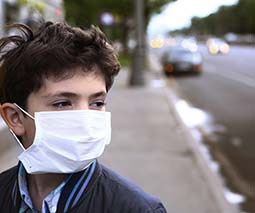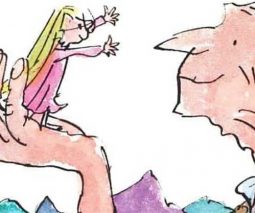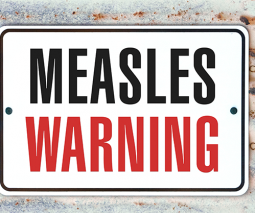Why are we still doing studies about autism and the MMR vaccine?

In a headline from the University of the Bleedingly Obvious, “Major study finds no link between measles vaccine and autism”. The title refers to a new report by Danish researchers published in the New England Journal of Medicine. By studying over 600,000 children for over a decade they found that there was no link between the measles, mumps, rubella vaccination and autism.
A persistent myth that has caused untold damage
But then, if you were at all interested in scientific evidence you would not be interested in this report.
You would already know that the original claim, that there was a link between the MMR vaccine and autism, was thoroughly debunked almost ten years ago.
The claim that there was a link came from a paper written by discredited Dr Andrew Wakefield in 1998. In 2010, The British General Medical Council found that Wakefield was dishonest and irresponsible in this paper. He studied 12 children and the findings in his paper could not be replicated by other scientists. It was also discovered he had a financial interest in an alternative measles vaccine.
Who would you trust? One man, who used a case study of 12 children and had a financial interest in a different measles vaccine, or a group of scientists studying over 600,000 children?
I know who I’d choose, but as I’ve indicated above, this study was not conducted to convince me that the MMR vaccination is safe.
This is not a story about scientific evidence, it’s a story about how you bust a persistent myth that has caused untold damage to the efficacy of vaccination across the world.
Read more about vaccines and immunisations:
- Vitamin K is NOT a vaccination – here’s why every newborn needs it
- “Vaccine myths are fake news”: Aussie anti-vax petition targets Facebook groups
- Whooping cough: Should babies be vaccinated at birth?
But will this research paper make a difference?
Humans have loved a good story for millennia. It turns out we’re not so different from our ancestors who gathered around the fire telling stories about what’s going on in the darkness of the night.
We find a story that answers our fears: there’s a monster that eats you if you go into the woods, rather than the world is an unpredictable place full of wild animals. Or, for this example, the MMR vaccine causes autism, rather than the truth that what causes autism is still unknown.
Add to that the current prevalence of ‘alternative facts’, a lack of trust in our governments and corporations, and you’ve got a persistent conspiracy theory that refuses to die.
In 2017 the Head of Public Health College of Medicine at Flinders University Professor Paul Ward suggested that using these methods to change a conscientious anti-vaxxers mind will not work.
In a paper titled Understanding the perceived logic of care by vaccine-hesitant and vaccine-refusing parents, he suggests that given those who reject vaccines don’t accept the traditional modes of scientific research, “It would be near-impossible to change behaviours or beliefs emanating from science, medicine or the Government, since these are all sites of distrust.”
“Herd immunity is all that’s keeping us safe”
Thankfully, there are people who are on the case with this. Some of the advice coming from researchers, like vaccine expert Julie Leask at the University of Sydney, suggests talking about your own positive experience with vaccination and trying to make sure that anti-vaxxers stay connected to their GP who can guide them through their concerns.
Greater minds than mine are trying to solve the problem of people who choose not to vaccinate their kids against dangerous diseases.
But even with such persuasive evidence as the latest research published in the New England Journal of Medicine, I doubt it will convince anti-vaxxers that the MMR vaccine is safe.
It’s going to take much more than scientific evidence to bust this myth for the true believers.









